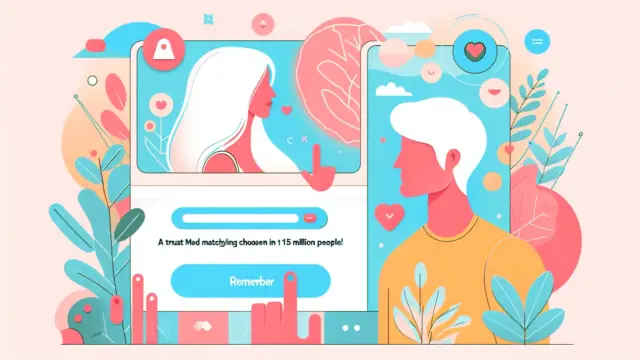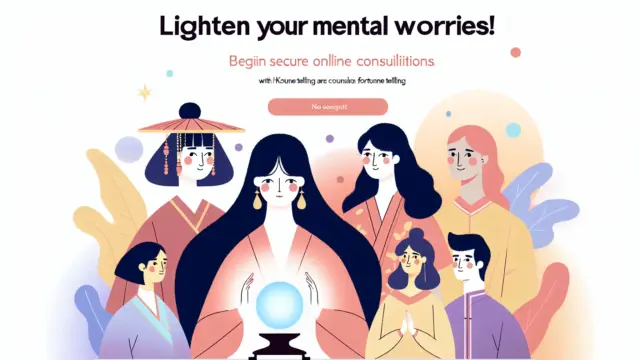You may have experienced moments in your romantic life where you felt a sense of imbalance or that things just weren’t quite right. This feeling is particularly common among men and can significantly impact communication and relationships. By delving into the reasons behind this perception, we can pave the way for healthier and more fulfilling romantic connections.
In this article, we will explore the psychological aspect of the feeling of imbalance that men often experience in relationships. We’ll discuss the importance of balance in love, share tips for better understanding your partner, and outline steps toward self-acceptance that can enrich your romantic journey.
- Defining the Feeling of Imbalance and Its Psychological Roots
- The Necessity of Balance in Relationships with Real-World Examples
- Creative Communication Strategies to Better Understand Your Partner
Chapter 1: What Does “Feeling Unequal” Mean for Men?
In the realm of romantic relationships, the feeling of being “unequal” is particularly common among men. This emotion indicates a perceived gap between oneself and their partner, which can significantly impact the relationship. To start, let’s define what “feeling unequal” really means, and then delve into the psychological factors behind this sentiment in men.
Defining “Feeling Unequal”
The term “feeling unequal” generally refers to a state where there’s a lack of balance between oneself and their partner. For instance, if a man perceives that his partner possesses greater attractiveness or values than he does, he is likely to feel “unequal.” This feeling often stems from low self-esteem or a lack of confidence.
Social expectations and roles play a significant role in shaping this feeling. Many men feel pressured to provide financial stability or emotional strength in a relationship. Consequently, if a man has a low self-assessment, he is more prone to feel a sense of inequality. Understanding this psychology can shed light on why men might feel this way, paving the way for better communication.
- “Feeling unequal” refers to a lack of balance between oneself and their partner.
- Men are particularly susceptible to low self-esteem due to societal expectations.
- A diminished self-assessment can lead to feelings of inequality.
The Psychological Background of Men
Several factors contribute to men feeling “unequal.” First and foremost, low self-esteem can play a significant role. When men lack confidence in themselves, they may struggle to appreciate their partner’s qualities, often feeling inferior instead.
Past relationship experiences also have an impact. If a man has faced rejection or carries emotional scars from previous relationships, he may carry that anxiety into new connections, leading him to feel “unequal” in those situations. By understanding these psychological factors, we can gain deeper insights into men’s behaviors and emotions.
- Low self-esteem is a key factor in feeling “unequal.”
- Past relationship experiences can influence one’s psychological state.
- Gaining insight into men’s emotions and behaviors can strengthen relationships.
Chapter 2: The Importance of Balance in Romantic Relationships
In romantic relationships, maintaining balance with your partner is crucial. Just as men sometimes struggle with feeling “out of balance,” successful relationships require both parties to cultivate a comfortable and harmonious dynamic. In this chapter, we’ll explore why balance is essential in love and discuss specific strategies for achieving it.
Why is Balance Necessary?
Balance in a romantic relationship fosters emotional stability. When both partners feel free to be themselves, it creates an environment of trust and security. Particularly for men who may feel “out of balance,” expressing their feelings openly can often be challenging. In such cases, a balanced relationship allows them to relax and open up more comfortably.
On the flip side, when balance is disrupted, relationships can become unstable. For instance, if one partner becomes overly dependent or harbors insecurities, the other may start to feel stressed. If this continues, it can lead to deterioration in the relationship, making it important to stay vigilant.
- Balance in love leads to emotional stability
- An environment where both partners can be themselves fosters trust
- A lack of balance can lead to relationship instability
Practical Ways to Maintain Balance
So, how can we actively maintain balance in our relationships? First and foremost, prioritizing communication is key. By actively listening to each other’s feelings and thoughts, you deepen your understanding and become more capable of meeting each other’s needs.
Next, focusing on personal growth is also essential. By valuing yourself and striving for self-improvement, you become a more attractive partner. This, in turn, enhances the relationship with your partner. Additionally, sharing hobbies and activities can increase common experiences, which helps build a balanced relationship.
- Prioritize communication to deepen mutual understanding
- Focus on personal growth to become a more appealing partner
- Share hobbies and activities to create more common experiences
Chapter 3: Key Points to Understanding Your Partner
To deepen a romantic relationship, understanding your partner is essential. In addressing feelings of imbalance in the relationship, recognizing your partner’s needs plays a significant role. In this chapter, we’ll explore ways to understand those needs and tips for effective communication.
How to Understand Your Partner’s Needs
The first step to grasping your partner’s needs is to ask them straightforward questions. By sharing thoughts and values, you can gain insights into what they truly desire. For instance, asking, “What makes you feel happy?” can help draw out the feelings and thoughts that reside in their heart.
Additionally, you can gather clues from your partner’s actions and expressions. Observing what they enjoy or are passionate about can provide valuable insights into what matters most to them. By actively engaging and showing genuine interest, you’ll naturally deepen your understanding.
- Discover your partner’s needs through questions
- Observe your partner’s actions and expressions
- Deepen understanding by showing interest
Tips for Effective Communication
To facilitate smooth communication, several strategies can be beneficial. First and foremost, it’s crucial to listen actively to what your partner is saying. When they speak, nodding or giving verbal affirmations shows that you are engaged and interested. This builds trust and paves the way for a more open conversation.
Moreover, it’s important to express your own feelings and thoughts honestly. It might feel a bit awkward, but being open about your emotions can help your partner feel more relaxed and willing to share. Even discussing feelings of imbalance in the relationship can lead to greater understanding through empathy.

If you’re interested in this topic, I recommend checking out this article, “Understanding Your Partner’s Feelings through Gestures and Learning About Love Psychology.” It offers insights into interpreting your partner’s feelings through their gestures and effective communication methods, so be sure to take a look!
- Actively listen to your partner
- Honestly express your feelings
- Seek empathy to deepen understanding
Chapter 4: The Path to Self-Acceptance and Growth
Feeling “unequal” in romantic relationships often stems from a lack of self-acceptance. In this chapter, we’ll explore steps towards embracing ourselves and tips for fostering psychological growth. By valuing yourself, you lay the groundwork for building healthier romantic relationships.
Steps to Embrace Yourself
To accept yourself, it’s crucial to be honest about your feelings. Instead of ignoring the anxieties and worries that often arise, take a moment to confront them head-on. By recognizing your emotions, you’ll gain insight into what truly matters to you.
Next, it’s important to reassess your self-evaluation. Listing your strengths and positive attributes can help you identify areas where you feel confident. For instance, seeking feedback from friends and family can be an effective way to gain perspective. Viewing yourself objectively allows for a more balanced self-assessment.
- Be honest about your feelings
- Reassess your self-evaluation and identify your strengths
- Seek feedback from friends and family
Tips for Fostering Psychological Growth
As you progress in self-acceptance, psychological growth will naturally follow. First and foremost, be kind to yourself. Instead of being critical of your failures or past experiences, practice self-forgiveness to lighten your heart. This shift will provide you with the courage to take on new challenges.
Creating a positive environment is also vital. Nurture relationships with trusted friends and supporters while steering clear of negative influences. By taking care of yourself, you’ll be better equipped to maintain healthy connections with others.

Advancing self-acceptance is essential for improving romantic relationships. If you’ve learned about self-evaluation and how to confront your emotions through this article, you might also find this piece, “Understanding Women’s Psychology When Apart: Changes in Feelings,” insightful. Gaining insight into the emotional dynamics of women can help deepen your romantic connections.
- Be kind to yourself
- Lighten your heart by forgiving failures and the past
- Create a positive environment
Conclusion
Understanding the psychology behind a man’s feelings of being “unequal” in a relationship is the first step toward enhancing your love life. By accepting yourself and striving to understand your partner, you can build a more balanced and fulfilling relationship. Prioritizing communication and being aware of each other’s needs will foster a deeper connection between you.
Keep these points in mind as you reflect on your personal growth and your relationship with your partner. I hope your romantic journey becomes richer and more joyful. So, give it a try!
- It’s essential to understand the psychology behind a man’s feelings of “inequality.”
- Know your partner’s needs and find creative ways to communicate.
- Promoting self-acceptance encourages psychological growth.
I wholeheartedly support you in guiding your love life in a wonderful direction! I’d love to hear from you, so feel free to share your thoughts and experiences in the comments.







Comment